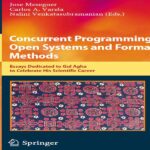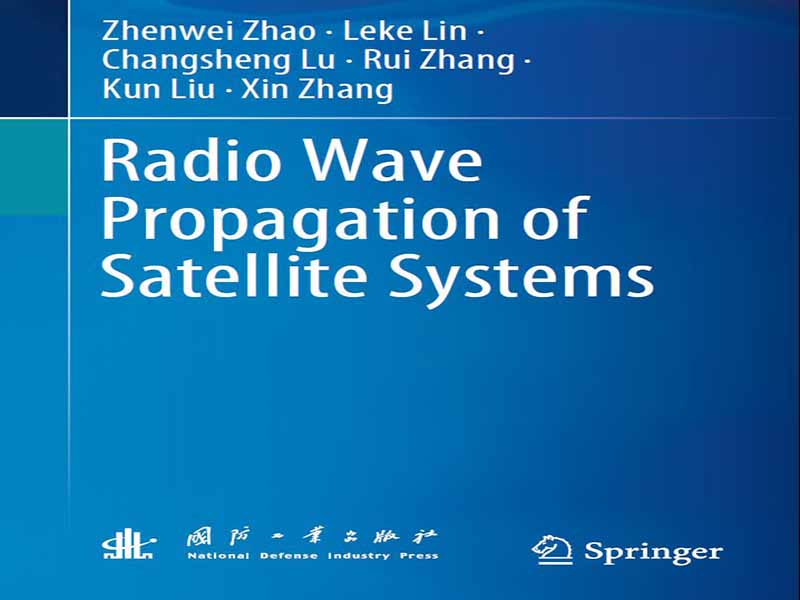- عنوان کتاب: Radio Wave Propagation of Satellite Systems
- نویسنده: Zhenwei Zhao, Leke Lin, Changsheng Lu
- حوزه: امواج رادیویی
- سال انتشار: 2025
- تعداد صفحه: 226
- زبان اصلی: انگلیسی
- نوع فایل: pdf
- حجم فایل: 5.74 مگابایت
اطلاعات قابل اعتماد در مورد ویژگیهای انتشار، به عنوان ستون فقرات طراحی، ساخت و بهرهبرداری از یک سیستم ماهوارهای عمل میکند. انتقال سیگنالهای رادیویی از کاربران زمینی به ماهواره در چنین سیستمی باید از جو زمین، شامل لایههای تروپوسفر و یونوسفر، عبور کند. تأثیر ایجاد شده بر انتشار امواج رادیویی توسط جو زمین، زمین و پوششهای مختلف، باعث تغییر در دامنه، فاز، قطبش و زاویه ورود سیگنال اتصال زمین-فضا میشود که منجر به تخریب سیگنال و حتی قطع شدید سیستم میشود. از این رو، در نظر گرفتن تأثیر انتشار امواج رادیویی بر عملکرد سیستم و همچنین دستیابی به شاخصهای فنی پیشبینی شده در طراحی سیستم بسیار مهم است. چگونگی تأثیر انتشار امواج رادیویی بر عملکرد سیستم ماهوارهای به فرکانس عملیاتی، روش انتقال، زاویه ارتفاع به سمت ماهواره و محیط جغرافیایی، هواشناسی و یونوسفری محلی بستگی دارد. به عنوان مثال، در حالی که تضعیف باران نقش مهمی در سیستمهای ماهوارهای که در باند فرکانسی Ku و بالاتر کار میکنند، ایفا میکند، به ندرت بر سیستمهای ماهوارهای که در باند فرکانسی L کار میکنند، تأثیر میگذارد. به طور مشابه، بازتابهای کلاتر، محوشدگی و سایه به عنوان عوامل مؤثر بر عملکرد یک سیستم ماهوارهای متحرک ظاهر میشوند و با انتخاب یک محل ترمینال مناسب در سیستم ماهوارهای ثابت قابل پیشگیری هستند. هنگام برنامهریزی و طراحی یک سیستم ماهوارهای، باید یک فرمولبندی قابل اعتماد از لینک انتقال مطابق با ویژگیهای آماری انتشار امواج رادیویی برای لینک زمین-فضا مربوط به سیستمهای ماهوارهای مختلف انجام شود تا مناسب بودن لینک از نظر محیطی افزایش یابد. در طول عملکرد یک سیستم ماهوارهای، میتوان از دینامیک محوشدگی، پیشبینی کوتاهمدت و پیشبینی تقریباً بلادرنگ برای اطمینان از اجرای روان تکنیکهای ضد محوشدگی و همچنین برنامهریزی وظایف سیستم استفاده کرد.
Reliable information about the propagation characteristics serves as the backbone for the design, fabrication, and operation of a satellite system. The transmission of radio signals from the ground users to the satellite in such a system must pass through the earth’s atmosphere, including the troposphere and the ionosphere layers. The effect generated on radio wave propagation by the earth’s atmosphere, the ground, and different coverings brings about a change in amplitude, phase, polarization, and angle of arrival of the Earth-space link signal, resulting in signal degradation and even grave system interruption; hence, it is vital to consider the effect of radio wave propagation on system performance as well as achievement of projected technical indexes in the system design. How radio wave propagation affects the functioning of the satellite system depends on the operating frequency, transmission method, angle of elevation toward the satellite, and local geographic, meteorological, and ionospheric environment. For example, while rain attenuation plays an important role in satellite systems operating at the Ku frequency band and above, it rarely affects satellite systems operating at the L frequency band; similarly, clutter reflections, fading, and shadowing emerge as instrumental factors responsible for affecting the performance of a mobile satellite system and are preventable by the selection of a proper terminal site in the fixed satellite system. While planning and designing a satellite system, a reliable formulation of the transmission link must be carried out in accordance with the statistical characteristics of radio wave propagation for the Earth-space link pertaining to diverse satellite systems, to enhance the environmental suitability of the link. During the functioning of a satellite system, fade dynamics, short-term forecasting, and near real-time forecasting can be utilized to ensure the smooth implementation of anti-fading techniques as well as the planning of system tasks.
این کتاب را میتوانید از لینک زیر بصورت رایگان دانلود کنید:




































نظرات کاربران